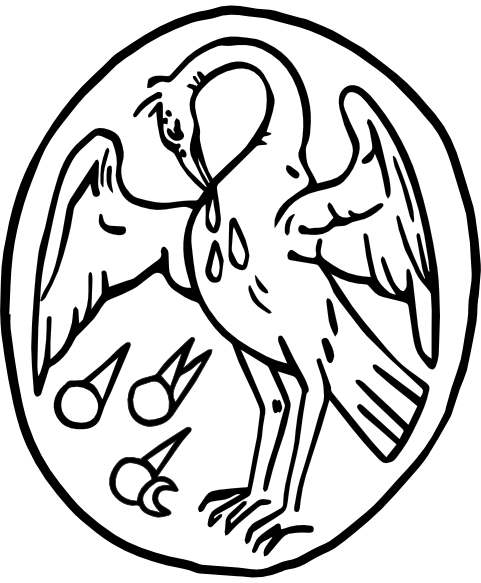«Aurum nostrum non est aurum vulgi», dicevano gli alchimisti, che erano impegnati in un’impresa spirituale ben più nobile e ardita del trasmutare i metalli poveri in oro. Allo stesso modo, Oro Fairtrade (o Fairtrade Gold) è fisicamente lo stesso oro che siamo abituati a vedere, a sognare e a indossare, eppure ha una qualità che lo rende diverso da qualsiasi altro: è come se avesse un cuore.
Oro Fairtrade è il primo sistema di certificazione etica indipendente al mondo per l’oro ed è stato lanciato nel 2011. Nel 2016, col nome Maraismara, l'ho introdotto in Italia, dando vita al primo laboratorio orafo e ai primi gioielli certificati Fairtrade del Paese.
Oro certificato Fairtrade è riconoscibile grazie al marchio Fairtrade impresso sui gioielli e all’etichetta che li accompagna.
Si tratta dell’oro più prezioso di tutti perché non solo è autenticamente tracciabile, ma apre anche al miglioramento, in quanto persegue l’obiettivo di aiutare i minatori a uscire dallo stato di povertà attraverso il loro stesso lavoro, senza lasciare tracce di sfruttamento o di inquinamento.

Il punzone per applicare il marchio di certificazione Fairtrade sui gioielli.
La realtà delle miniere artigianali
La maggior parte dell’oro richiesto dall’industria orafa viene estratto, perché gli scarti e il riciclo, pur da millenni integrati nei processi produttivi, coprono soltanto parzialmente la richiesta (leggi di più). Di questo oro di nuova estrazione, quattro quinti proviene da grandi miniere industriali o LSG (large-scale mining), mentre la restante parte da miniere artigianali o ASM (artisanal and small-scale mining).
Le miniere LSG vengono gestite da grandi compagnie e sono operazioni ambientalmente impattanti, massimamente meccanizzate e organizzate.
Al contrario, le miniere ASM sono composte da individui, piccoli gruppi di persone, famiglie o cooperative che estraggono l'oro dal suolo con un minimo, se non assente, aiuto meccanico. Si tratta di un lavoro intenso e raramente regolato, che di frequente viene praticato per pura sopravvivenza.
I minatori spesso non guadagnano abbastanza da sfamare le loro famiglie o semplicemente da coprire i costi di estrazione, perché l’oro da essi prodotto non viene pagato il prezzo di mercato fissato dal London Bullion Market (LBMA), ma fino al 30% in meno. La loro posizione al principio della catena di produzione li rende molto vulnerabili, perciò possono essere facilmente sfruttati dai compratori.
[Leggi qui il report IGF]
Fairtrade lavora proprio al fianco di questi minatori artigianali emarginati e delle loro comunità, per sostenerli e accompagnarli nel miglioramento delle condizioni di lavoro e, dunque, di vita.
Tecniche rudimentali, tecnologie assenti e mancanza di misure di sicurezza, rendono le operazioni delle miniere artigianali molto pericolose. Mercurio e cianuro, che se non usati correttamente hanno effetti devastanti sulla salute dell’uomo e sull’ambiente, vengono spesso impiegati poiché costituiscono una soluzione efficiente ed economica nelle pratiche di recupero dell’oro.
Per via delle conoscenze e delle tecnologie arretrate, come pure per il coinvolgimento di superfici esigue e di vene aurifere marginali, i minatori artigianali producono appena il 15% dell'oro estratto al mondo, ma rappresentano ben il 90% dell'intera forza lavoro del settore.
[FOTO: un minatore toglie dell'acqua da una miniera non Fairtrade allagata in Uganda. Ian Berry / Magnum]
Che cosa significa “Fairtrade”?
Fairtrade (non «fair trade» o «Fair-trade») è un'organizzazione presente in tutto il mondo e un marchio di certificazione etica che ha l’intento di aiutare i piccoli produttori, che di solito sono i più emarginati, nel raggiungere un livello di vita dignitoso, ma anche il loro pieno potenziale, attraverso il commercio.
I prodotti a marchio Fairtrade sono tantissimi: cioccolata, caffè, banane, tè, cotone, rose, zucchero, oro e tanti altri ancora. Per ogni tipologia di prodotto esistono gli Standard Fairtrade, ovvero delle norme rigorose, stabilite a livello internazionale, alle quali devono attenersi tutti gli attori della filiera e che:
- permettono ai produttori di ricevere un prezzo minimo equo (prezzo minimo Fairtrade), che è garantito e stabile perché coerente con il valore reale del prodotto;
- garantiscono anche il Premio Fairtrade, cioè un margine aggiuntivo pagato ai produttori per investire in progetti sociali, sanitari e di business development. Il programma è partecipativo e democratico, infatti sono gli stessi produttori che decidono come utilizzare il Premio Fairtrade;
- vietano il lavoro minorile;
- prevedono condizioni di lavoro che rispettino la dignità umana;
- garantiscono un premio aggiuntivo per l'agricoltura biologica certificata;
- prevedono il prefinanziamento dei raccolti;
- istituiscono rapporti commerciali diretti e duraturi;
- tutelano l’ambiente.
"Oro Fairtrade" (o "Fairtrade Gold") è la formula usata per indicare l'oro che è stato estratto, lavorato e commercializzato secondo gli Standard Fairtrade per i metalli preziosi, che assicurano:
- Prezzo minimo
Lo sviluppo di relazioni commerciali trasparenti a lungo termine, che significa che le organizzazioni auree certificate non devono dipendere da intermediari che spesso si rivelano sfruttatori. Il prezzo minimo Fairtrade è sostanzialmente superiore al prezzo di vendita che normalmente le miniere emarginate ottengono. - Premio
Le miniere certificate Fairtrade ricevono, oltre il prezzo minimo garantito, il premio Fairtrade di US $ 2000 per chilogrammo d'oro. Questo reddito aggiuntivo viene investito sia nel miglioramento dei processi operativi che in progetti comunitari come la costruzione di scuole, centri sanitari e approvvigionamento idrico. Ciò rafforza la sviluppo dei produttori in modo sostenibile e duraturo. - Le organizzazioni dei minatori vengono rafforzate
I minatori si raggruppano in cooperative per avere un potere di contrattazione migliore con i commercianti, per ottenere un ritorno più equo per il proprio oro e un maggiore controllo sulla catena di approvvigionamento dei gioielli. Sono tenuti a partecipare allo sviluppo sociale delle loro comunità. - Lavoro minorile
Le organizzazioni dei minatori devono eliminare il lavoro minorile dalla propria organizzazione. Nessuno di età inferiore ai 15 anni deve essere assunto per lavorare nell'organizzazione mineraria. I minori di 18 anni non devono lavorare in condizioni pericolose. - Migliorano le condizione di lavoro
La certificazione Fairtrade richiede l'uso obbligatorio di equipaggiamento protettivo e formazione sulla salute e la sicurezza per tutti i minatori. - Rispetto della libertà di associazione
Le organizzazioni dei minatori riconoscono il diritto di tutti i lavoratori di stabilire e unirsi a sindacati e di negoziare collettivamente le loro condizioni di lavoro. - È obbligatorio fare uso responsabile delle sostanze chimiche
I minatori devono utilizzare pratiche sicure e responsabili per la gestione di sostanze chimiche tossiche, come mercurio e cianuro, per il recupero dell'oro. I prodotti chimici devono essere ridotti al minimo e, ove possibile, eliminati in un periodo di tempo concordato.
Oro Fairtrade costituisce una novità potente nell’industria orafa, perché è un sistema che non si limita a registrare acriticamente il percorso di un materiale prezioso, ma vigila in ogni fase sulle condizioni e le modalità di lavoro.
Tutti coloro che partecipano alla filiera dell’Oro Fairtrade, vale a dire le miniere, le raffinerie e le aziende orafe, hanno una licenza e sono periodicamente ispezionati da un ente di controllo indipendente, a prescindere dalla quantità di oro lavorato.

L'oro Fairtrade proviene dal Perù
Le miniere certificate Fairtrade si trovano sulle Ande a più di 4500 m sul livello del mare, più precisamente nel distretto di Ananea, a nord del Lago Titicaca, nella regione di Puno. Si tratta di una zona tradizionalmente votata all'allevamento di alpaca e alla produzione di lana, che sono una parte fondamentale dell’identità delle comunità indigene locali. Queste attività, tuttavia, non bastavano a fornire sufficienti prospettive economiche, perciò molti abitanti hanno cominciato, in maniera legale e illegale, a dedicarsi all’estrazione dell’oro in maniera artigianale. Grazie al supporto della filiera Fairtrade, questa attività è diventata una valida e sicura possibilità per superare la povertà.
La prima organizzazione mineraria della regione a ottenere la certificazione Fairtrade è stata quella di Limata. Tutto nasce grazie all’esempio di CECOVASA, una cooperativa di caffè Fairtrade della zona. Limata ha potuto osservare gli effetti positivi del Premio Fairtrade e ha quindi deciso, nel 2017, di intraprendere il percorso di certificazione con Fairtrade.
L’oro di questa miniera proviene da giacimenti alluvionali, perciò le operazioni di estrazione avvengono in superficie. Il lavoro incomincia nelle prime ore del mattino, col freddo andino, ed è portato avanti da 25 minatori divisi in due squadre.
Dopo la certificazione si sono posti l’obiettivo di ottenere l'accesso diretto al mercato internazionale, perché prima non riuscivano a esportare direttamente e non avevano contatti diretti con nessun altro attore della filiera (raffinerie, banche internazionali e aziende orafe). Un passo importante verso la propria autodeterminazione economica è stato incontrare personalmente i potenziali partner commerciali in Svizzera e prendere coscienza dei reciproci obblighi e dipendenze, lungo la filiera, fino ai prodotti finali.
La cooperativa si impegna a essere leader nel settore minerario rispettando la legge, implementando le migliori pratiche di produzione e realizzando esportazioni dirette. Nella provincia di Ananea, Limata è stata anche la prima organizzazione a ricevere "inicio-reinicio", il requisito per il riconoscimento formale come organizzazione mineraria. I minatori lavorano nel rispetto di severe misure di sicurezza, riducendo così i rischi per la salute e possibili incidenti. Hanno anche implementato un piano ambientale per ottimizzare l'uso dell'acqua e ridurre al minimo l'impatto delle attività di estrazione. Uno degli obiettivi più importanti è ridurre progressivamente l'uso del mercurio, intanto utilizzato in sicurezza, fino alla sua eliminazione grazie all’introduzione di nuove tecnologie.
La comunità di Limata si impegna a rimanere fedele alle proprie radici, a creare lavoro per i membri della comunità e a creare un futuro per la prossima generazione. I minatori credono che la certificazione Fairtrade non sia solo un sistema per differenziarsi sul mercato, ma anche un meccanismo per migliorare le loro prospettive di vita. Limata ora esporta direttamente, ma c’è ancora margine per il rafforzamento economico e organizzativo, che deve essere fatto attraverso l'informazione, la visibilità e lo sviluppo di capacità. Il premio Fairtrade offrirà il supporto finanziario per continuare a garantire sostenibilità e competitività e per creare gli strumenti di cui i minatori hanno bisogno per cambiare la loro vita e realizzare i loro sogni.
La cooperativa Minera Metalúrgica di San Francisco de Ananea è una delle dieci cooperative che insieme formano l'organizzazione ombrello CECOMSAP (Central de Cooperativas Mineras San Antonio de Poto).
È stata fondata nel 2006 da 24 soci e si trova a un'altitudine compresa tra 4.600 e 4.900 m. La maggior parte dei membri vive ad Ananea, mentre alcuni nella città di Juliaca.
L'inizio dell'attività della cooperativa è stato caratterizzato dall'informalità e dall'assenza di macchinari pesanti. Grazie all'aumento delle entrate e con il supporto di CECOMSAP, che organizza anche le esportazioni, i minatori hanno avviato il processo di formalizzazione, che hanno concluso con successo nel 2017.
Alcuni progetti finanziati con il Premio Fairtrade:
- miglioramento della qualità dell’acqua;
- chiusura di vecchi serbatoi di sedimentazione dei fanghi per la protezione dall'inquinamento ambientale e per la rinaturalizzazione;
- realizzazione degli uffici della cooperativa a Juliaca;
- acquisto di un forno fusorio con sistema di estrazione del fumo per la produzione di oro grezzo;
- miglioramenti abitativi per i minatori;
- acquisto di indumenti protettivi per i minatori;
- acquisto di 248 coperte;
- donazione di computer e stampanti al liceo locale;
- regali di Natale per gli scolari;
- stage per soci cooperativi nella regione di Cajamarca, dove sono stati in grado di acquisire nuove conoscenze sull'estrazione mineraria;
- formazione dei membri e dei lavoratori delle cooperative in materia di contabilità, ruoli e funzioni di partner e dirigenti.
Intanto in Africa

Alla fine del 2016 in Uganda, SAMA, una piccola associazione che produce a mala pena 5 kg di oro l’anno, è diventata la prima miniera certificata dell’Africa. Purtroppo, malgrado gli sforzi fatti, gli audit hanno rivelato delle condizioni di lavoro ancora inadeguate per gli standard e la certificazione è stata revocata.
Tuttavia la filiera non è stata abbandonata: Fairtrade, anche in collaborazione con altre aziende, sta lavorando con progetti specifici per migliorare sempre di più la situazione sul posto e raggiungere le condizioni di lavoro necessarie all’ottenimento della certificazione.
Guarda il reportage fotografico di Ian Berry per fare un passo nella realtà dei minatori artigianali di oro.




